You can find tutorials: -> here <-
Although i am adding the jars to the classpath differently it will work for you.
Simple example code:
import java.io.IOException;
import java.util.logging.Level;
import java.util.logging.Logger;
import javax.sound.sampled.AudioSystem;
import javax.sound.sampled.Port;
import edu.cmu.sphinx.api.Configuration;
import edu.cmu.sphinx.api.LiveSpeechRecognizer;
import edu.cmu.sphinx.api.SpeechResult;
public class Main {
// Logger
private Logger logger = Logger.getLogger(getClass().getName());
// Variables
private String result;
// Threads
Thread speechThread;
Thread resourcesThread;
// LiveRecognizer
private LiveSpeechRecognizer recognizer;
/**
* Constructor
*/
public Main() {
// Loading Message
logger.log(Level.INFO, "Loading..\n");
// Configuration
Configuration configuration = new Configuration();
// Load model from the jar
configuration.setAcousticModelPath("resource:/edu/cmu/sphinx/models/en-us/en-us");
configuration.setDictionaryPath("resource:/edu/cmu/sphinx/models/en-us/cmudict-en-us.dict");
// if you want to use LanguageModelPath disable the 3 lines after which
// are setting a custom grammar->
// configuration.setLanguageModelPath("resource:/edu/cmu/sphinx/models/en-us/en-us.lm.bin")
// Grammar
configuration.setGrammarPath("resource:/grammars");
configuration.setGrammarName("grammar");
configuration.setUseGrammar(true);
try {
recognizer = new LiveSpeechRecognizer(configuration);
} catch (IOException ex) {
logger.log(Level.SEVERE, null, ex);
}
// Start recognition process pruning previously cached data.
recognizer.startRecognition(true);
// Start the Thread
startSpeechThread();
startResourcesThread();
}
/**
* Starting the main Thread of speech recognition
*/
protected void startSpeechThread() {
// alive?
if (speechThread != null && speechThread.isAlive())
return;
// initialise
speechThread = new Thread(() -> {
logger.log(Level.INFO, "You can start to speak...\n");
try {
while (true) {
/*
* This method will return when the end of speech is
* reached. Note that the end pointer will determine the end
* of speech.
*/
SpeechResult speechResult = recognizer.getResult();
if (speechResult != null) {
result = speechResult.getHypothesis();
System.out.println("You said: [" + result + "]\n");
// logger.log(Level.INFO, "You said: " + result + "\n")
} else
logger.log(Level.INFO, "I can't understand what you said.\n");
}
} catch (Exception ex) {
logger.log(Level.WARNING, null, ex);
}
logger.log(Level.INFO, "SpeechThread has exited...");
});
// Start
speechThread.start();
}
/**
* Starting a Thread that checks if the resources needed to the
* SpeechRecognition library are available
*/
protected void startResourcesThread() {
// alive?
if (resourcesThread != null && resourcesThread.isAlive())
return;
resourcesThread = new Thread(() -> {
try {
// Detect if the microphone is available
while (true) {
if (AudioSystem.isLineSupported(Port.Info.MICROPHONE)) {
// logger.log(Level.INFO, "Microphone is available.\n")
} else {
// logger.log(Level.INFO, "Microphone is not
// available.\n")
}
// Sleep some period
Thread.sleep(350);
}
} catch (InterruptedException ex) {
logger.log(Level.WARNING, null, ex);
resourcesThread.interrupt();
}
});
// Start
resourcesThread.start();
}
/**
* Takes a decision based on the given result
*/
public void makeDesicion(String result) {
//implemented in the part 2
}
/**
* Java Main Application Method
*
* @param args
*/
public static void main(String[] args) {
// // Be sure that the user can't start this application by not giving
// the
// // correct entry string
// if (args.length == 1 && "SPEECH".equalsIgnoreCase(args[0]))
new Main();
// else
// Logger.getLogger(Main.class.getName()).log(Level.WARNING, "Give me
// the correct entry string..");
}
}
Grammar File:
#JSGF V1.0;
/**
* JSGF Grammar
*/
grammar grammar;
public <numbers> = (one | two | three| four| five | six | seven | eight | nine | ten);
public <action> = (plus | minus | multiply | division);
public <final> = (show result);
